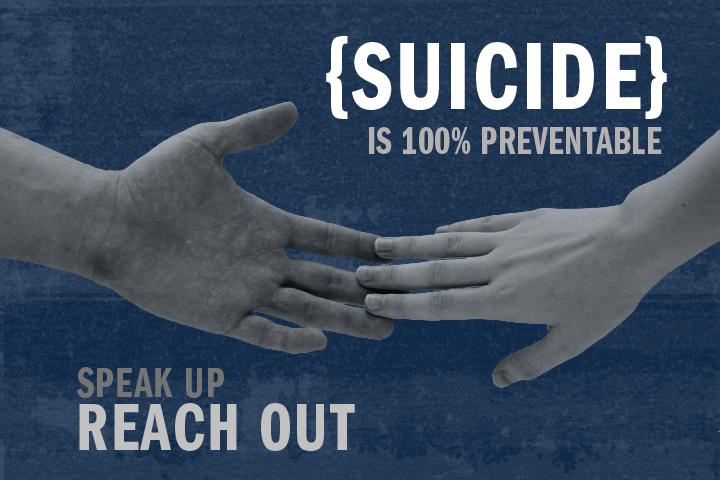There are people who can help
Confronting the realities of suicide in a high school environment
In today’s world, comments such as “I’m going to kill myself” or “I want to die” have become parts of typical, yet generally benign conversations. As a result, teenagers are beginning to become passive about comments like these, but what if someone making these comments actually has legitimate intentions? How does one tell if these comments are serious? The legitimate comments may get mixed into the jocular comments and go right over the heads of others. It is common to hear about suicides after which, people come out and say that the person had talked about suicide; however, nobody thought that they were serious and that the suicide may have been prevented if somebody had simply spoken up.
“I firmly believe that there is nothing funny about someone wanting to harm themselves or attempting suicide or attempting to take their own life. Students or adults find themselves in that situation or are that desperate, and I’m not sure where the humor lies there,” stated Dr. Nicole Yetter, guidance department chair at North Penn High School.
Yetter has also noticed this issue, especially on social media. She believes that students use social media as an almost anonymous voice where they say things that they might not say in person. They do not realize how the things they say would be interpreted in person.
“I do see sometimes kids even in a joking manner say things where they think they’re being funny or even if they’re meaning it to be hurtful, I don’t know that they understand what that would really look like if they said it to someone’s face. So as you’re joking about something as serious as suicide, would you really say that to someone’s face? I have seen it on social media and it’s disheartening,” Yetter explained.
People beginning to take suicide more lightly and constantly joking about it is concerning since it can be hard to tell is someone is serious. So when should one be worried?
“You know that feeling you get in your stomach when you’re nervous? If you ever get that feeling, or you’re ever worried, or uncertain, that’s when you need to ask. If you’re ever worried enough, or you’re ever questioning yourself, or asking yourself ‘Is this something I should be worried about?’ then there’s a part of you that’s saying ‘Something doesn’t seem right here,’ and that’s when you should let someone know,” Yetter encouraged.
Many students, however, may be hesitant about telling a counselor or a trusted adult about something as serious as self harm or suicide. Students may think that they are betraying the person’s trust or worrying too much about the person when the person is not thinking about anything of the sort and merely joking.
“I would rather have someone be upset with me than to not be alive. I would rather have someone be upset with me than to harm themselves in a way that really could take a toll on their life,” told Yetter.
If a student concludes that he or she needs to tell someone, there are many people who are ready to listen. Students can talk to anyone in their home office or any trusted adult at school or in their community. Reporting a serious issue can be intimidating, so if a student feels uncomfortable doing it in person, then they can use an email to their counselor or anyone else at school whom they trust or a hotline (listed below). Students should know that they always have someone to turn to if they are seriously concerned.
The bottom line is that suicide and self harm are issues that can have horrific impacts on people’s lives and should not be used in common expressions or jokes.
“Again, there’s nothing funny about it, so if someone thinks they’re joking, they need to understand that there’s nothing funny because there really isn’t. Even if they’re making a joke about it and they’re not really thinking about it for themselves, they need to have empathy and understanding that there really are people who are thinking about those things for themselves, and they’re in such pain and there’s nothing funny about that,” Yetter stated.
Hotlines:
Phone # 215-853-1353
Fax # 215-853-1195


